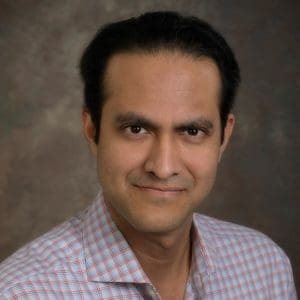Reconciling Technical Differences to Save the Environment. Member Spotlight: Saleem Ali
 Saleem Ali, self-identifies as a global mediator, is a Professor of Energy and Environment at the University of Delaware. Saleem has lived in three countries (the United States, Pakistan, and Australia) and travels internationally for environmental mediations. He is a member of the International Resource Panel of the United Nations Environment Program (UNEP). Saleem became a Peace Builder with MBBI and joined the organization’s roster of experts after attending the MBBI Congress in Romania in 2015.
Saleem Ali, self-identifies as a global mediator, is a Professor of Energy and Environment at the University of Delaware. Saleem has lived in three countries (the United States, Pakistan, and Australia) and travels internationally for environmental mediations. He is a member of the International Resource Panel of the United Nations Environment Program (UNEP). Saleem became a Peace Builder with MBBI and joined the organization’s roster of experts after attending the MBBI Congress in Romania in 2015.
He accredits his fascination to the mediation field from his Ph.D. supervisor, Lawrence Susskind, founder of the Consensus Building Institute (CBI). During his program, Saleem learned from and stimulated inspiration from CBI’s mediators where his current career in international environmental mediation began.
Making Technical Language Accessible
One of Saleem’s most important contributions to the international environmental mediation landscape is through the creation and subsequent passing of The Kigali Amendment to the Montreal Protocol on Substances that Deplete the Ozone Layer. It has entered into force on January 1, 2019, underneath UNEP. The Montreal Protocol on Substances that Deplete the Ozone Layer entered into force on January 1, 1989. It is one of the most successful environmentally based UN treaties as every UN member is a party to this treaty. It focuses on the reduction of Chlorofluorocarbons (CFCs) that was rapidly dissolving the ozone layer.
However, more recent climate change conventions, protocols, and treaties, which many nations have also signed, contradict the Montreal Protocol. So, by the behest of the UN Ombudsman John Barkat, a team of mediators set out to reconcile the differences between the treaties. This work became inundated with technical knowledge of the types of chemicals and their usage – especially in commercial items like refrigerators and air-conditioning units.
This team of mediators, including Saleem, had to create consensus between the groups of people advocating for firmer chemical restrictions and to respect the Montreal Protocol. The intricacies and nuances of the types of chemicals and their environmental effects had to be communicated in a more general way in order to create the Kigali Amendment which successfully reconciled the differences between the Montreal Protocol and other climate change treaties.
Sustainable Development Mediation
Mining disputes, mineral governance, and extractive industry conflicts are Saleem’s main foray of the international mediation sphere. He worked in the Pacific Islands, especially Australia, Fiji, and the Solomon Islands, resolving disputes in the mining sphere including disputes between miners and mining companies. This has led him to become an expert in mineral resource governance architecture, and especially its relationship to individual countries’ chances for sustainable development.
Most recently, Saleem was at the fourth international session of the UNEP Environment Assembly in Nairobi, Kenya March 11-15, 2019. With his role on the International Resource Panel, he helped produce an extensive report on mineral resource governance that was shown and discussed at the fourth session in Kenya. The report suggests practical actions to improve the international governance architecture for mining to enhance its contribution towards sustainable development. His main contribution to the report is the idea of the Sustainable Development License to Operate (SDLO) informed by expert inputs from a High-level Panel on Mining for Sustainable Development. The report further considers the creation of an International Mineral Agency to share relevant information and data. Click here to read the full report.
Saleem’s vibrant career in environmental mediation has been continually framed by Viktor E. Frankl’s quote “Between stimulus and response, there is a space. In that space is our power to choose our response. In our response lies our growth and our freedom.”
Article by Ben Lutz, MBBI Writer
